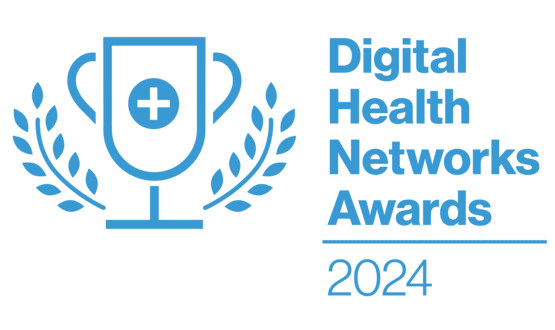Clinical informatics: in the US, it’s certifiable
- 11 June 2014

In January, 455 tech-savvy doctors in the US became the first to receive board certification as subspecialists in clinical informatics.
This marked the moment that the American Board of Medical Specialties came to consider clinical informatics as a bona fide medical subspecialty.
It was also the culmination of a decade's worth of work to establish the legitimacy of the role of chief medical information officer – the American equivalent of the UK chief clinical information officer – and to recognise the work of other clinical informatics leaders in improving healthcare.
"Healthcare is a very certification-oriented field," notes Dr William Hersh, director of graduate biomedical informatics education programs at Oregon Health and Science University, and one of the inaugural class of board-certified clinical informaticians. "[The certification] brings professional recognition to the role informatics plays in healthcare.”
Joining the boards
The push to legitimise the field has been spearheaded by the American Medical Informatics Association, which represents healthcare professionals and students with an interest in transforming healthcare via informatics, science and education.
The organisation gained membership of the Council of Medical Specialty Societies in 2007, with an eye toward establishing clinical informatics as a subspecialty. At the time, AMIA was the only council member that did not offer board certification.
The American Board of Preventive Medicine and the American Board of Pathology co-sponsored the effort, and have taken responsibility for certification in clinical informatics. However, the credential is available to medical doctors in the US with board certification in any of the 24 recognised medical specialties.
"Clinical informatics is not simply 'computers in medicine' but rather is a body of knowledge, methods, and theories that focus on the effective use of information and knowledge to improve the quality, safety, and cost-effectiveness of patient care as well as the health of both individuals and populations," former AMIA presidents Dr Don E Detmer and Dr Edward H Shortliffe explained in a recent commentary in the Journal of the American Medical Association.
"The new certification process for physicians who are subspecialists in clinical informatics should prove to be an important contributor to short-term improvements in systems and their implementation, as well as to the longer-term evolution of health information technology as it seeks to assert a positive influence on health, health care, quality, efficiency, and reduction in costs.
“This includes integrating patients and communities into a health-oriented culture using informatics to manage social determinants of disease.”
Learning from experience
Clinical informatics is a subspecialty and not a specialty for two major reasons. It was "more politically saleable" to go the subspecialty route; and many clinical informatics specialists no longer practice medicine full-time, so they may not have kept up a primary board certification, according to Hersh.
For the first five years, candidates for board certification may sit for the exam based on professional experience alone, as long as they are already certified in one of the 24 ABMS specialties. From 2018, however, the only way to be eligible for the certification will be by completing a 24-month fellowship in clinical informatics, similar to those in other specialties.
That and several other factors mean that work is far from complete. Those qualifying based on experience have all learned informatics differently, but the exam is standardised, so AMIA has developed a review course. Live, three-day courses are scheduled for July in Philadelphia and September in Chicago, or candidates can take the 20-hour review online in preparation for the next exam in October.
Last month, the organisation introduced enhancements to its online review course, with audio lectures in addition to PowerPoint slides, some135 new questions for self-assessment, additional simulated exam questions and readings, and a customisable curriculum.
"It's kind of based on the premise that individuals learn differently," says Jeffrey J Williamson, AMIA's vice president of education and academic affairs. "Physicians are incredibly busy."
AMIA also launched an online community of practice. "It's a place [for the informatics group] to do needs assessment," according to Williamson, who adds that at least 95% of those who sat for the exam in October 2013 took one of AMIA's clinical review courses. "That's not hard when you have no competition," he jokes.
Looking beyond physicians
As with any newly recognised field, de facto acceptance by the medical establishment may take time. "I think it's going to take a while for certification to be important," Hersh says.
He notes that emergency medicine became a board-certified medical specialty in 1980, but it took several years until emergency departments began actively seeking doctors with board certification."Certification will probably be of more value to people who are relatively new to the field," Hersh predicts.
In the US, board certification tends to be more important for professional than for academic reasons, so not having the subspecialty certification will probably not preclude university-based informaticians from securing research grants.
Meantime, focus is shifting toward expanding the certification to other professionals and to developing continuing education, as certificate holders must re-certify every five years.
"Physicians were kind of the low-hanging fruit in that there is a certification framework to plug into," Hersh explains. Only 30% of students in his informatics programmes at OHSU are physicians, but the pathway for creating subspecialty certification was better defined for those who are physicians.
Detmer is leading AMIA's effort to create an equivalent exam for other informatics professionals, including nurses, dentists, chemists and osteopathic physicians, a project complicated by the fact that not all of these fields have subspecialties.
Chief nursing information officers would be excellent candidates, according to Detmer, professor emeritus of medical education at the University of Virginia and a visiting professor at the Centre for Health Informatics and Multiprofessional Education (CHIME) at University College London. "We would have a very similar core curriculum and training requirements," he says.
Moving over here?
Detmer also has an eye toward exporting clinical informatics certification to the UK. He spent nearly five years at Cambridge University, during which time he reviewed the national health IT strategy for Parliament.
In the UK, GPs tend to have more interest in clinical informatics as a specialty than the Royal Medical Colleges do, according to Detmer. "What's really needed, eventually, is a Royal College of Informatics," he suggests.




